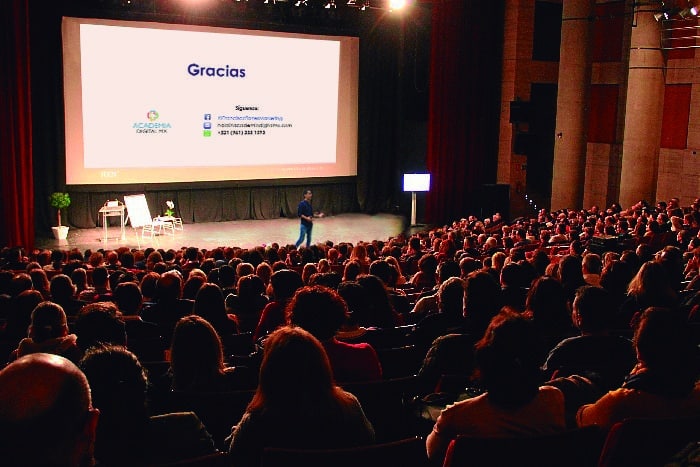
Another cornerstone of the speaker's message is the importance of setting and pursuing meaningful goals. Drawing from their own experiences, they offer practical techniques for goal setting that go beyond mere wishful thinking. Through workshops and talks, the speaker breaks down the process of clarifying objectives, breaking them into manageable steps, and developing a concrete action plan.
The speaker's dedication to charitable work also extends to non-profit organizations. They offer workshops, talks, and seminars specifically designed to support the missions of these organizations. By sharing their insights on personal development, goal setting, and positive mindset, the speaker contributes to the capacity-building efforts of non-profits, enabling them to better serve their communities.
Digital resources, such as downloadable guides, worksheets, and e-books, provide actionable steps that individuals can implement immediately. These resources serve as practical tools for those seeking personal growth, further amplifying the speaker's influence in the digital sphere.
Mexicans are the citizens and nationals of the United Mexican States. The most spoken language by Mexicans is Spanish, but many also speak languages from 68 different Indigenous linguistic groups and other languages brought to Mexico by recent immigration or learned by Mexican expats residing in other countries. Wikipedia
Speaks: Spanish Language, Nahuatl, Spanish (Mexico), Mayan languages, Mixtec languages
France: 19,000
New Zealand: 2,080
Other countries combined: 370,633
Spain: 61,194
United Arab Emirates: 1,744
United Kingdom: 16,050
Geography and Borders:
Size and Population:
Pre-Columbian History:
Colonial Period and Independence:
Liberal Reforms and Wars:
Porfirio Díaz and Modernization:
Mexican Revolution:
Cultural Heritage:
Challenges and Achievements:
Modern Identity:
Language and Etymology:
Rich Pre-Columbian Civilizations:
Spanish Conquest and Colonial Era:
Liberal Reforms and Political Struggles:
Porfirio Díaz's Impact:
Mexican Revolution and Transition:
Cultural Significance and Challenges:
Modern Identity and International Presence:
The speaker's path was not free from doubts, fears, and moments of uncertainty. They faced financial difficulties, self-doubt, and societal pressures that could have easily discouraged anyone. However, these challenges were not roadblocks but rather stepping stones that led to their remarkable evolution.
Influence of Published Works on a Wider Audience
Through word of mouth, online reviews, and recommendations, the influence of the speaker's publications spreads, touching lives across the globe. Readers share stories of how the books have prompted positive changes, shifted perspectives, and empowered them to take control of their lives. The reach of their message is expanded as these readers, inspired by the written words, embark on their own journeys of growth and transformation.
The speaker's ability to connect with their audience on a personal level is a driving force behind their success. By sharing relatable experiences, vulnerabilities, and triumphs, they create an environment of authenticity and trust that resonates deeply with listeners. This connection encourages attendees to believe in their own potential and empowers them to take meaningful steps toward achieving their goals.
Beyond the stage, the Mexican motivational speaker's impact extends to workshops and seminars that offer participants a hands-on approach to skill development. These interactive sessions go beyond motivational talks, providing attendees with actionable insights and practical tools that they can apply in their daily lives.
Emphasizing Resilience and Perseverance
In the upcoming sections, we will delve into the Mexican motivational speaker's commitment to charitable and community initiatives, reflecting their dedication to giving back and making a positive impact on society.
Change is inevitable, and the Mexican motivational speaker helps audiences see it as an opportunity rather than a threat. They share their personal experiences of navigating significant changes in their own life, revealing how embracing change led to unforeseen growth and transformation. By reframing change as a chance for development, they empower listeners to embrace uncertainty.
Empowering Audiences to Take Action

Turning Points and Challenges Faced
These condensed versions are particularly useful for individuals seeking immediate inspiration or a refresher on the speaker's concepts. They reinforce the speaker's commitment to equipping individuals with practical tools to incorporate into their daily lives.
In the following sections, we will explore the impact of the Mexican motivational speaker's talks and engagements, as well as their charitable and community initiatives. These aspects highlight the broader influence of their message and their commitment to making a positive difference in the lives of others.
Collaboration with Businesses and Institutions
Podcasts, Webinars, and Digital Resources
Educational Journey and Influences